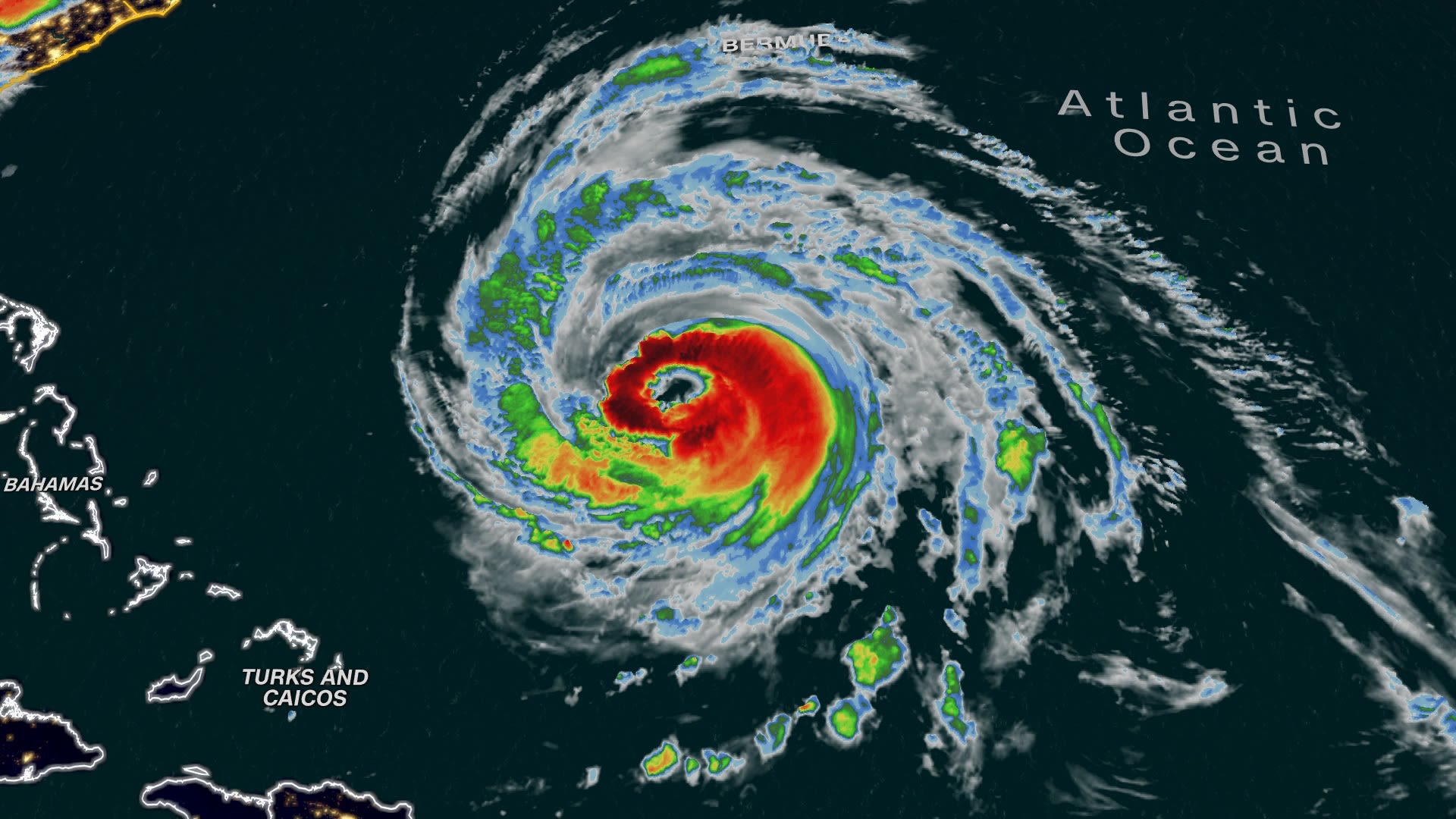Massive Hurricane Lee a growing threat to New England, Canada
(CNN) — Hurricane Lee’s threat to portions of New England and Atlantic Canada is growing, with a track closer to the coast becoming more likely and a massive wind field that could reach these areas regardless of where the storm finally tracks later this week and this weekend.
The massive storm, which was a Category 3 hurricane as of Wednesday morning, continued to churn northwest in the open Atlantic and was about 430 miles south-southwest of Bermuda with maximum sustained winds of 115 mph.
A tropical storm warning remains in effect for Bermuda ahead of Lee’s brush with the island Thursday. After bringing strong winds, heavy rainfall and dangerous seas to Bermuda, Lee will set its sights on portions of the US and Canada.
Lee’s winds could arrive as early as Friday evening for portions of New England.
Lee will weaken, but the storm’s impacts beyond its center will be significant because of its colossal size, which has grown considerably since the weekend. Hurricane-force winds extend outward up to 115 miles from the center, and tropical-storm-force winds extend up to 240 miles.
And that’s why a weaker storm isn’t less hazardous. A larger storm carries the potential to impact a more widespread area, increasing the likelihood that Lee will affect New England. And the waterlogged region is particularly susceptible to damage from strong winds and additional rainfall.
What to expect in New England, Canada
By the end of the week, New England could see wind gusts of 40 to 60 mph, even while Lee’s core remains hundreds of miles away.
Tropical storm-force wind gusts could impact portions of Connecticut and eastern Massachusetts Friday night. High winds, heavy rainfall and storm surge could impact other parts of New England and eastern Canada this weekend.
The exact timing and extent of Lee’s winds and rainfall for the northeastern US and eastern Canada will depend on the cyclone’s track later this week into the weekend.
A track closer to the US coast is becoming more likely. Lee is expected to interact with a weather system over the mid-Atlantic that will pull the cyclone slightly westward while it’s off the coast of New England.
If Lee is able to maintain this more westward track, gusty winds and heavy rainfall will reach farther into New England, mainly Friday night through Saturday.
The soil across much of New England is already soaked. Rainfall in parts of Massachusetts and New Hampshire is more than 300% above normal values over the past two weeks, according to weather service data. Destructive flooding already occurred in parts of Massachusetts earlier this week.
More rainfall this week ahead of Lee will prime the environment for flash flooding, so even moderate amounts of rain from Lee could be dangerous.
The combination of tropical storm-force wind gusts and saturated soil will also bring down trees more easily, especially since trees across New England are still in full leaf. This raises the risk of a higher number of power outages across the region.
Meanwhile, dangerous surf is affecting the southeastern US coast from Florida through the Carolinas. The risk of rip currents now spans the East Coast from Florida to coastal Massachusetts.
